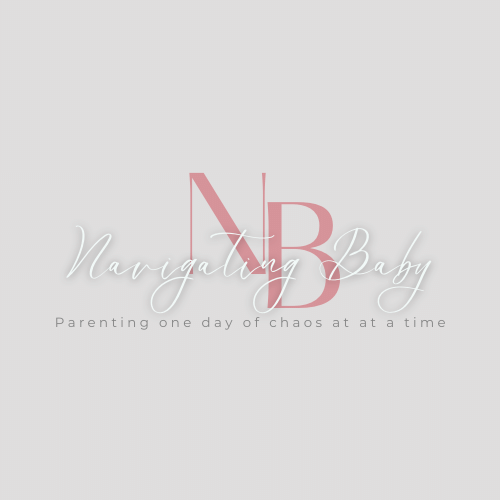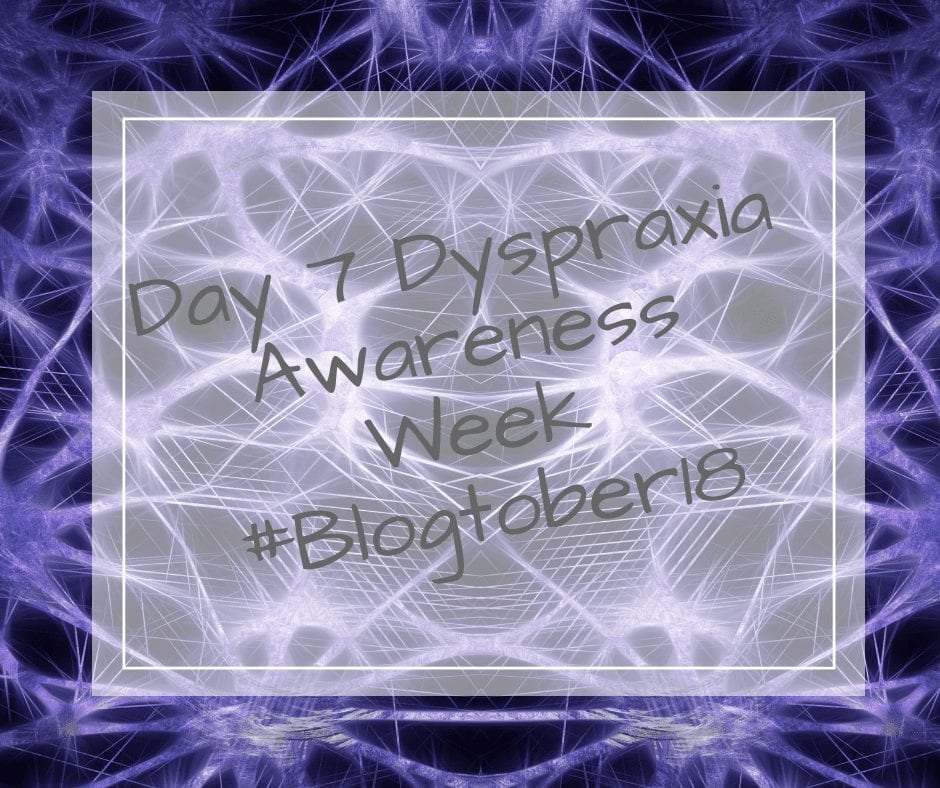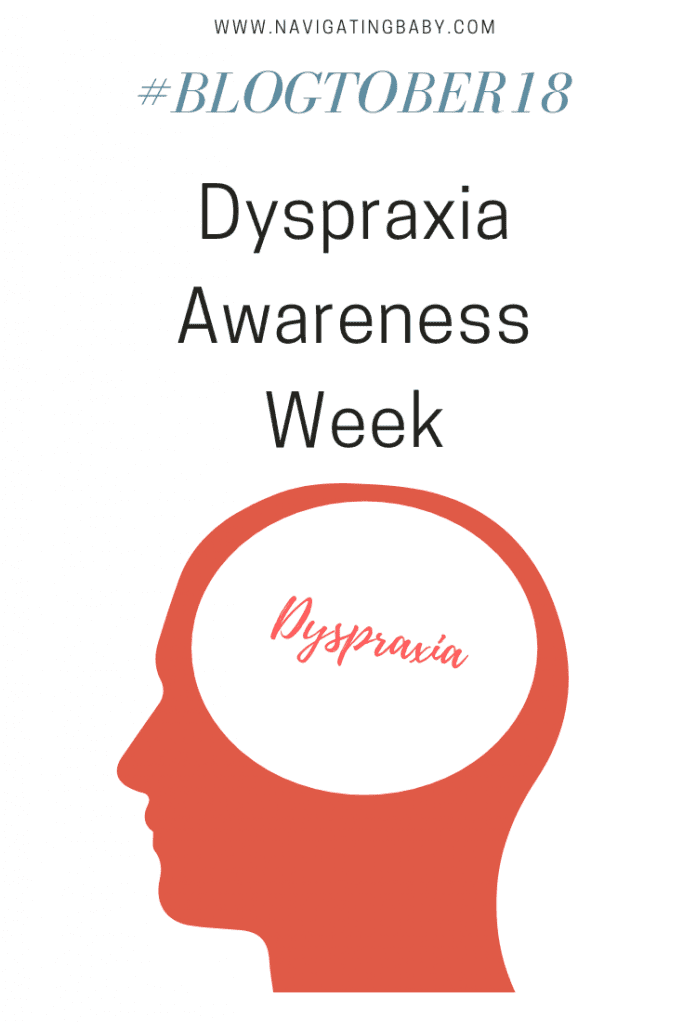Today the theme for #blogtober18 is Gross Motor Skills as part of #dyspraxiaawarenessweek. I don’t know much about dyspraxia. Of course I have heard of it, but have not had any personal experience of the condition. I almost decided to write about something else today, but then I thought about it and realised that this is about raising awareness. So since I am unaware I thought I had best change that and find out more about dyspraxia. This is what I found out mostly from the dyspraxia foundation
Dyspraxia is also called Developmental Coordination Disorder (DCD) and is a disorder that affects fine and/or gross motor coordination in both children and adults. Those with dyspraxia may have varied difficulties and these can change during their lifetime. Their coordination issues can impact all aspects of their lives including education and work. It can make it dififcult for children to learn new skills such as riding a bike, writing and even with play or self care. As children become adults many of their difficulties will continue to impact activities that those without dyspraxia may take for granted. They may struggle to drive a car or have social and emotional difficulties and find organisation and time management a problem which in turn can cause issues within their employment.
Dyspraxia can occur as a stand alone condition. However, frequently those diagnosed with dyspraxia also have other conditions such as Attention Deficit Hyperactive Disorder (ADHD) or dyslexia. There is often no known cause for dyspraxia and those with the condition have no clinical neurological abnormality to explain their condition. Current research has determined that it is due to an immaturity of neurone development in the brain.
As with most conditions all individuals are different and may not have exactly the same symptoms, but below are some of the things you may see in a child with Dyspraxia.
- Reaches milestones such as rolling over, sitting, standing, walking and speaking late
- May be behind peers with developing skills such as running, hopping, jumping, kicking and catching a ball
- May struggle with keeping friends
- Could find walking up and down stairs difficult
- Might find positional concepts such as ‘in’ and ‘on’ difficult
- May fall over often
- Might struggle with dressing themselves
- Could be anxious and easily distracted
- May be poorly organised and struggle with remembering or following instructions
- Could find jigsaws or shape sorting puzzles tricky
- Avoids PE and games
- May have trouble once at school with maths and writing
I also discovered that the Dyspraxia Foundation are trying to raise £30,000 this year. That is £1000 for every year they have existed. To find out more please click here.






Up until yesterday I didn’t know much about Dyspraxia. It has been a real eye opener for me x
Thank you for sharing this information, I didn’t really know much about Dyspraxia until reading a few posts today #Blogtober18
My pleasure. I learnt a lot too #blogtober18